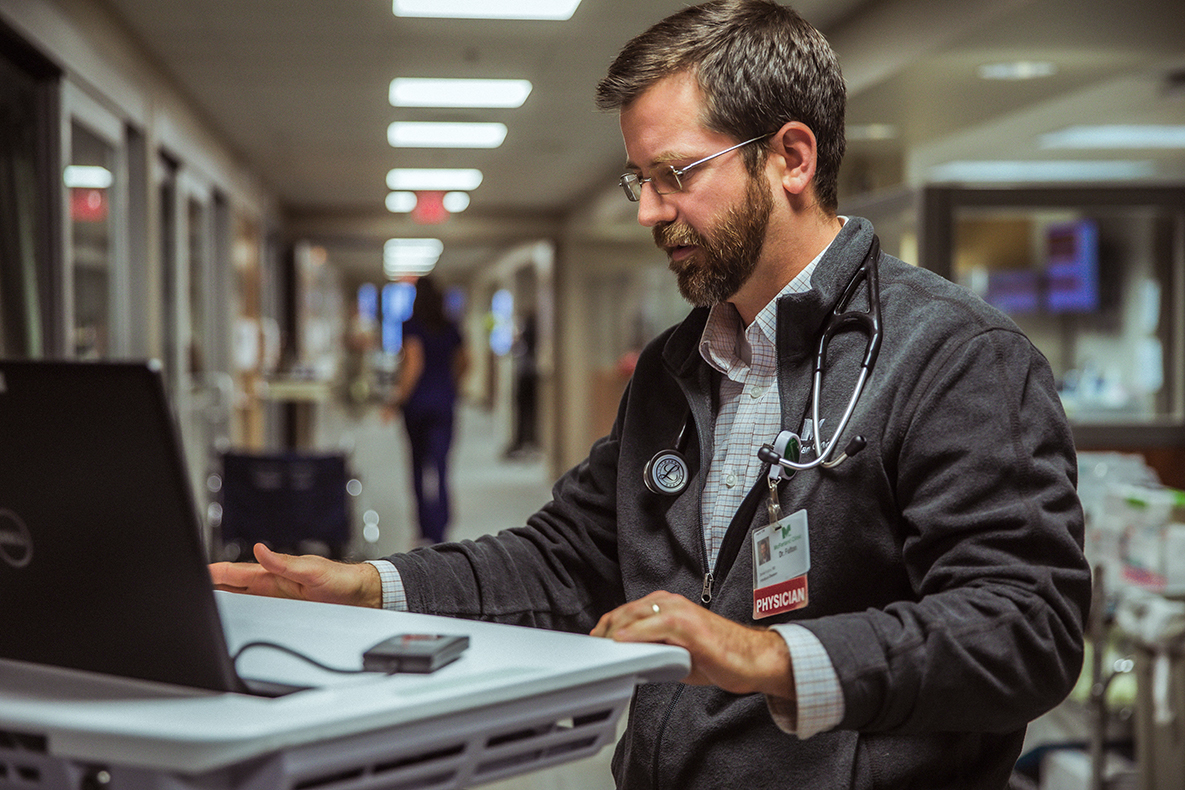The College of Liberal Arts and Sciences (LAS) offers students a plethora of professional pursuits, including those related to health care.
Following are the stories of four alumni who chose different paths in LAS to achieve their health care career goals. Through majors in biology, genetics, psychology, Spanish, and zoology, LAS helped these alums discover their callings in the health care arena. And while each of their jobs are very different, their collective goal is the same – to improve the lives of others.
Dan Fulton: Transforming health care within hospital walls
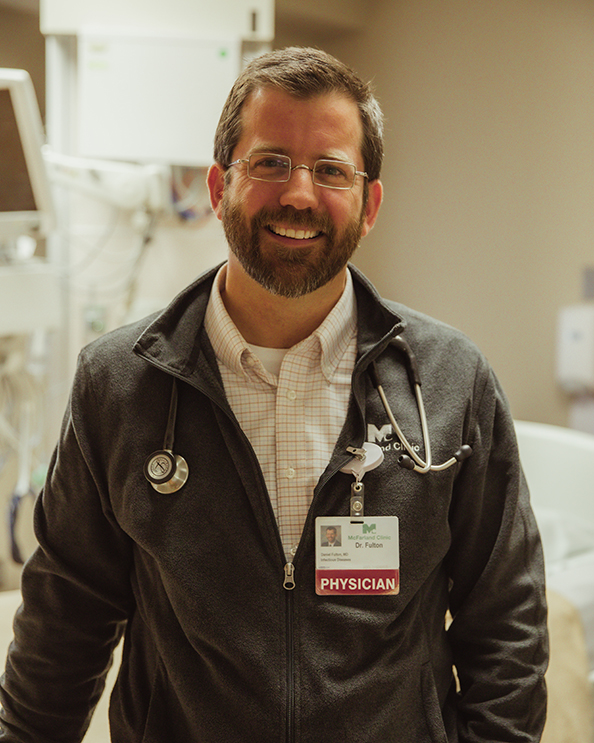
Dan Fulton (’04 biology) vividly remembers the moment he wanted to become a physician. He was in 7th grade and he read an article about Dr. David Ho, who had been instrumental in the discovery and treatment of HIV (human immunodeficiency virus). This was Fulton’s introduction to infectious diseases, which ultimately led him to pursue a biology degree at Iowa State.
“A big part of the draw to infectious disease for me was that as a specialty, it naturally seemed to serve people on the margins of society,” he said. “People suffering from homelessness and poverty are more likely to have severe infections for a variety of reasons.”
Today, Fulton is an infectious disease specialist at Mary Greeley Medical Center and McFarland Clinic in Ames, Iowa. He treats patients with serious illnesses, like HIV, tuberculosis, and malaria. Other physicians often call upon him to help diagnose infections in their patients.
“Over time, what I have come to appreciate about infectious disease is the collaborative nature of the practice,” Fulton said. “Because infections can occur in any part of the body, we get to work with almost every other specialty in medicine, and particularly, in some of the most complicated and seemingly unsolvable problems that patients encounter.”
Without question, the most challenging disease Fulton has faced both professionally and personally so far in his career is COVID-19. As a leader on Mary Greeley Medical Center’s infectious disease medical team, Fulton was instrumental not only in establishing safety protocols within the hospital and clinic system at the beginning of the pandemic, but he also battled on the front lines in the intensive care unit as COVID-19 ravaged the community.
“The pandemic was not an abstraction, it wasn’t numbers. It was people. It was blood and vomit and heartbreak and tears and separation and tragedy,” Fulton said.
Fulton found himself not only tending to sick patients but also regularly consulting with hospital administrators about best practices and strategies for protecting both patients and employees.
“There was a lot of fear at that time and I felt that if I picked up the flag and ran forward, others would follow,” Fulton said.
“The pandemic was not an abstraction, it wasn’t numbers. It was people. It was blood and vomit and heartbreak and tears and separation and tragedy."
Iowa State leaders also relied on Fulton’s health care expertise as the university delved into unchartered territory at the pandemic’s onset. He participated in several town hall meetings with students, faculty, and staff, where he unscrambled the complexities and uncertainties of COVID-19.
Now, as the COVID-19 pandemic subsides and fewer people are getting seriously ill from the virus, Fulton’s work routine is beginning to resemble the pre-COVID era. He continues to treat COVID patients, but the ICU is no longer jam-packed. He and the rest of the hospital staff are beginning to catch their collective breath.
“The storm of COVID is fading, and I hope we can go a good long time before the next pandemic,” Fulton said. “But no matter when – if one comes – we’ll be ready.”
Kate Henderson: Transforming health care from the executive suite
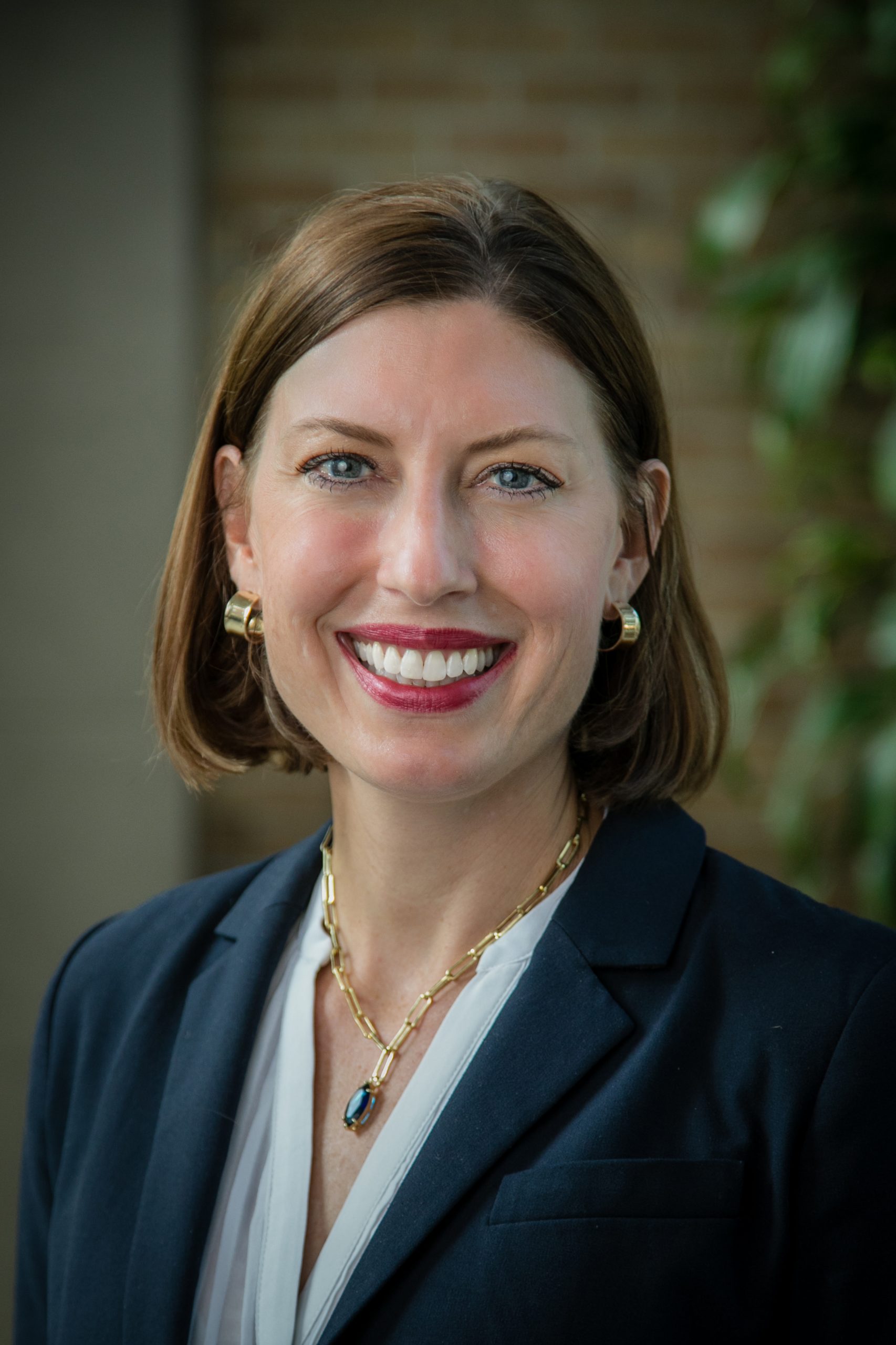
Growing up on her family farm in northwest Iowa, Kate Henderson (’97 biology) was surrounded by people who served others. Whether it was helping a neighbor harvest their crops after a debilitating illness or preparing a meal for someone who experienced the loss of a loved one, helping others is embedded in Henderson’s DNA.
She took that desire to serve others to Iowa State, where she majored in biology with the goal of becoming a scientist, researcher, or clinician. Henderson excitedly participated in undergraduate research, which enhanced her passion for discovery and innovation.
“It was that experience that both substantiated that I did want to work in a field where science was happening and impactful, but it also highlighted to me that I’m a pretty extroverted person and that my strengths are relationship development and communication,” Henderson said.
At that time, Henderson sought guidance from her academic advisor, who suggested she consider other health-related opportunities. That led to co-chairing Iowa State’s annual blood drive and shadowing a variety of health care professionals at Mary Greeley Medical Center in Ames.
“I thought, ‘This is really interesting.’ I started to see how my interests and talents could fit into a health-related field, and specifically, how I could be part of a health care team with my planning, communications, and people management skill set,” she said.
Realizing that she could still play an integral role in health care without wearing scrubs led Henderson to pursue a master’s degree in health care administration. She has enjoyed a 25-year career leading large, multi-facility health care systems with a focus on making health care accessible to all.
“Historically, we thought a career in health care meant being a nurse, a doctor, a scientist, or a hospital administrator. Health and health care are much broader than that.”
“I feel very compelled to make sure health care is accessible, which means care that is affordable and available both in person or virtually,” Henderson said.
Henderson is proud of the work she has accomplished as a health care executive. She considers herself a “dot connector” – someone who can oversee the entire medical operation and determine what’s working, what isn’t, and connect the experts who can make the needed improvements.
“I’ve been trained to look for patterns, measure outcomes, and align people into teams to improve care and service,” she said. “I’m really proud of the work we have done to accelerate sharing best practices and systemizing how we deliver care so that we can improve care outcomes for everybody.”
Henderson knows first-hand that it’s important for students interested in health care professions to experience different facets of the industry.
“Historically, we thought a career in health care meant being a nurse, a doctor, a scientist, or a hospital administrator. Health and health care are much broader than that,” Henderson said. “I encourage students to think broadly and to sample the many opportunities to play a role on a health care team – communications specialists, biomedical engineers, finance professionals, information systems, medical ethicists, physicists, data scientists, medical interpreters, and so much more. Find what speaks to you.”
Zewditu Demissie: Transforming health care by focusing on population health equity
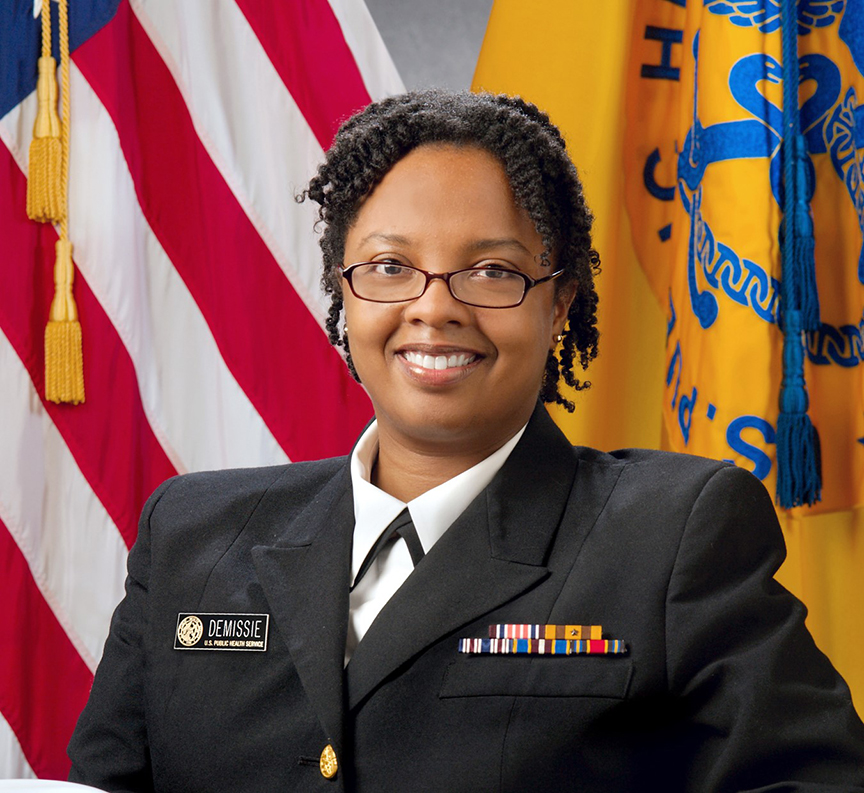
While studying genetics and psychology as an undergraduate student at Iowa State, Zewditu Demissie (’02 genetics, psychology) discovered that she was drawn to understanding how to influence the overall well-being of an entire population.
“I chose a career in public health because I enjoy a focus on populations. I like thinking about the big picture and looking upstream to figure out how we can prevent circumstances and choices that lead to injury, illness, and premature death,” Demissie said.
Demissie’s desire to positively impact public health is so great, she works two careers to get the job done. Since 2010, she has served in several positions at the Centers for Disease Control and Prevention (CDC) in Atlanta, Georgia. Her initial positions focused on adolescent and school health as well as violence prevention. Currently, Demissie is the health equity infrastructure and capacity building team lead in the CDC’s Office of Health Equity.
“Public health is a multidisciplinary field. It takes individuals from a variety of professions to advance the public’s health.”
“My team is responsible for activities related to improving and evaluating improvement of state, tribal, local, and territorial capacities and capabilities to effectively address minority health and health equity considerations, as well as fostering growth of the health equity workforce.”
And if that’s not enough, Demissie serves as a commander in the U.S. Public Health Service (USPHS) Commissioned Corps, one of the nation’s uniformed services. The mission of USPHS is to protect, promote, and advance the health and safety of the nation.
Demissie’s public health career sprouted with her genetics and psychology undergraduate majors. She believes that individuals from a variety of backgrounds can make significant contributions in any arena related to health care.
“Public health is a multidisciplinary field. It takes individuals from a variety of professions to advance the public’s health,” Demissie said. “Contributions can be made from genetics, psychology, epidemiology, data science, health behavior and education, law, communications, health administration, economics, anthropology, etc. You never know what path may bring you to the public health field.”
Lauren Hughes: Transforming health care by seeing the big picture
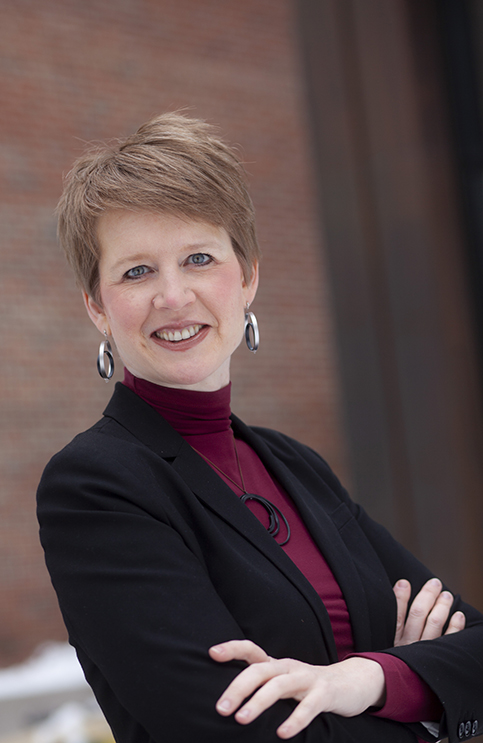
When she was 4 years old, Lauren Hughes (’02 zoology, Spanish) received the Fisher-Price medical kit as a gift from her parents. From that moment on, she was going to be a doctor, and everyone knew it.
“That’s all I talked about,” Hughes said.
She carried her dream of becoming a physician with her to Iowa State, where majors in zoology and Spanish, along with key gap years, shaped her eventual career in health policy and clinical medicine. Following graduation from Iowa State in 2002, she joined AmeriCorps, a federal volunteer agency dedicated to strengthening communities in need.
“Where you live, whether you’re employed, if you have access to education, if you have access to healthy food – these things have more impact on your health and wellness than what I do for you clinically in my office. This realization was rooted in that AmeriCorps year,” Hughes said.
Following her AmeriCorps experience, Hughes incorporated public health into her medical school training. She received her master’s degree in public health (MPH) from George Washington University, and a medical degree from the University of Iowa. During her MPH year, Hughes interned for former Iowa Senator Tom Harkin and served as national president of the American Medical School Association following medical school.
“To me, it’s not just exciting but imperative to focus upstream and look at our current policies. How do we make changes that will make it easier for patients to get the care from whom they need it, when they need it, and wherever they need it, and more importantly, to live healthy lives?”
“Through these experiences, I met people who cared about bigger picture issues, like a holistic approach to health, what medical education should really address, care of the LGBTQ population, elevating women and minorities in medicine, and health care reform. It very much aligned with my political and philosophical leanings,” Hughes said.
Today, Hughes is an associate professor in the Department of Family Medicine at the University of Colorado. She spends 25% of her time in clinical practice caring for patients, and the remainder on health policy development at the university’s Farley Health Policy Center. In all of her work, Hughes is dedicated to making a difference in health care by addressing foundational “upstream” issues, such as better access to housing and food.
“To me, it’s not just exciting but imperative to focus upstream and look at our current policies. How do we make changes that will make it easier for patients to get the care from whom they need it, when they need it, and wherever they need it, and more importantly, to live healthy lives?” Hughes said.
Hughes is passionate about making health care more affordable and accessible in rural areas. She is proud of the work she accomplished while employed at the Pennsylvania Department of Health, where she was instrumental in developing a new global budget model for rural hospitals, instead of the traditional fee-for-service model.
“I love working in the rural health care space because I firmly believe that where you’re born or where you choose to live should not dictate your health outcomes and what you have access to,” Hughes said. “We live in a country where the ZIP code in which you live influences a great deal about your health outcomes. That is not acceptable to me. Period.”
